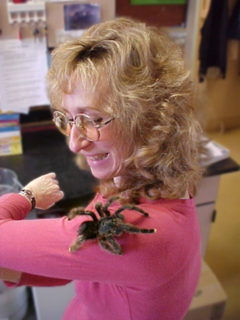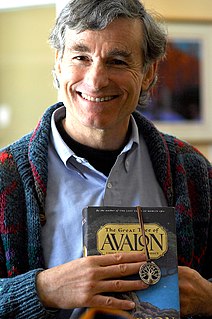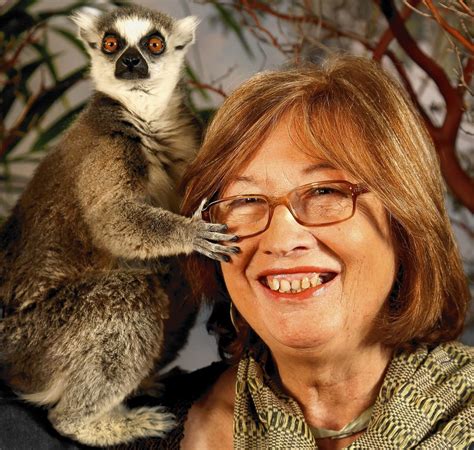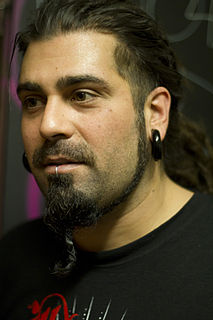A Quote by Richard Heinberg
The idea that we industrialized humans are immune to the natural laws that have restrained growth in other species-and humans in past social regimes-is to me so self-servingly blind as to be morally reprehensible.
Related Quotes
When humans act like animals, they become the most dangerous of animals to themselves and other humans, and this is because of another critical difference between humans and animals: Whereas animals are usually restrained by the limits of physical appetites, humans have mental appetites that can be far more gross and capacious than physical ones. Only humans squander and hoard, murder and pillage because of notions.
It was not that I disliked people; some of them were interesting and kind. But even the nice ones were no more compelling or important to me than other creatures. Then, as now, to me humans are but one species among billions of other equally vivid and thrilling lives. I was never drawn to other children simply because they were human. Humans seemed to me a rather bullying species, and I was on the side of the underdog.
Humans call animals 'dumb'... after they robbed their entire own precious world. They are intelligent beings in their own right, and thoroughly self-sufficient... if not molested by humans. Yet, after millennia of slavery by selfish/callous humans they're made to look dumb! The 'superior species' in their situations would, too, appear 'dumb'.
Something which is against natural laws seems to me rather out of the question because it would be a depressive idea about God. It would make God smaller than he must be assumed. When he stated that these laws hold, then they hold, and he wouldn't make exceptions. This is too human an idea. Humans do such things, but not God.
So far as this argument is concerned nonhuman animals and infants and retarded humans are in the same category; and if we use this argument to justify experiments on nonhuman animals we have to ask ourselves whether we are also prepared to allow experiments on human infants and retarded adults; and if we make a distinction between animals and these humans, on what basis can we do it, other than a bare-faced - and morally indefensible - preference for members of our own species?
We have a very old conservation movement, particularly in the United States, which has focused on campaigns to protect endangered species: the spotted owl, the old-growth forest. But usually it stops there. To me, biodiversity is the full spectrum. Species conservation is not only about wilderness conservation. It?s also about protecting the livelihood of people even while changing the dominant relationship that humans have had with other species. In India, it?s an economic issue, not just an ecological one.
Those who consume animals not only harm those animals and endanger themselves, but they also threaten the well-being of other humans who currently or will later inhabit the planet. ... It is time for humans to remove their heads from the sand and recognize the risk to themselves that can arise from their maltreatment of other species.
My first job was actually as a social worker. And then later, I got my PhD in anthropology. And I've always been interested in humans as well as primates. We are all kind of have the same emotions, the same goals and lives really. But to me, when I first got to Madagascar I realized that the lemurs lives are very closely related to what the humans are doing; partially because they've got both looking for natural resources. And if we can make some way that both humans and lemurs can live together peaceably and happily, that would be my goal for Madagascar.
It has been an obsession of human beings to create a hierarchy that places the human species on top and lumps all the "other animals" together beneath us. The resulting "speciesism" allows us to look upon animals as less deserving of all manner of rights and considerations than humans. To support this lower status, humans have argued that animals act instinctually; don't have souls; don't feel physical pain like we do; and lack self-consciousness, cognitive intelligence, emotional feelings, morality, and ethics.
'Extinction' issue. Save the species for whom??? Humans' convenience, of course! Individuals of the species are snatched from their homes/family/habitat/held in captivity/forced to mate at great physical/ spiritual pain. When the right numbers are reached, their holocaust starts all over again! Another merry-go-round/ bu$ine$$ a$ u$ual!!! Protectionists/welfarists find it a profitable issue: no controversy/ easy donations! I'd rather see an entire species extinct than in the hands of the humans!
































